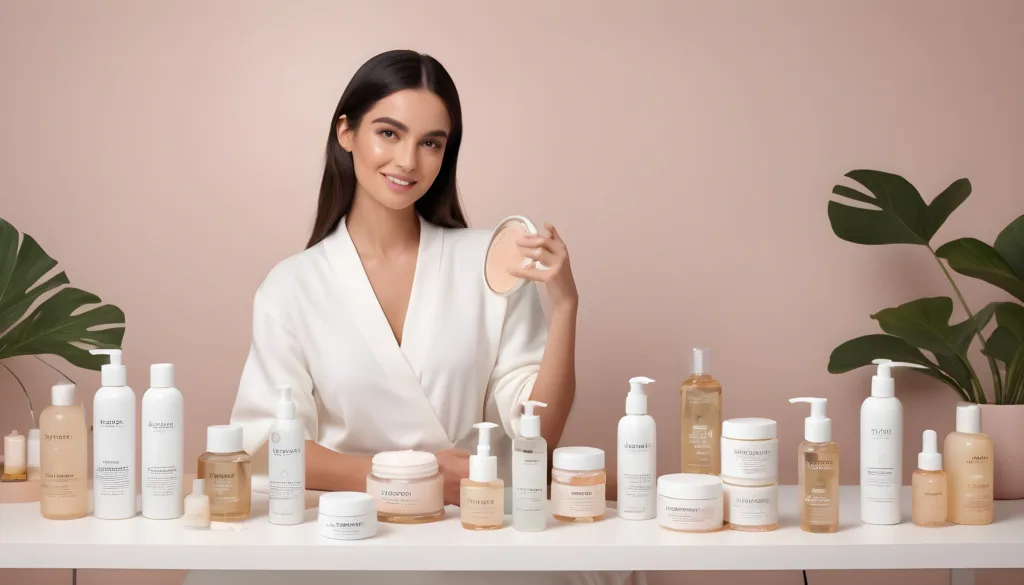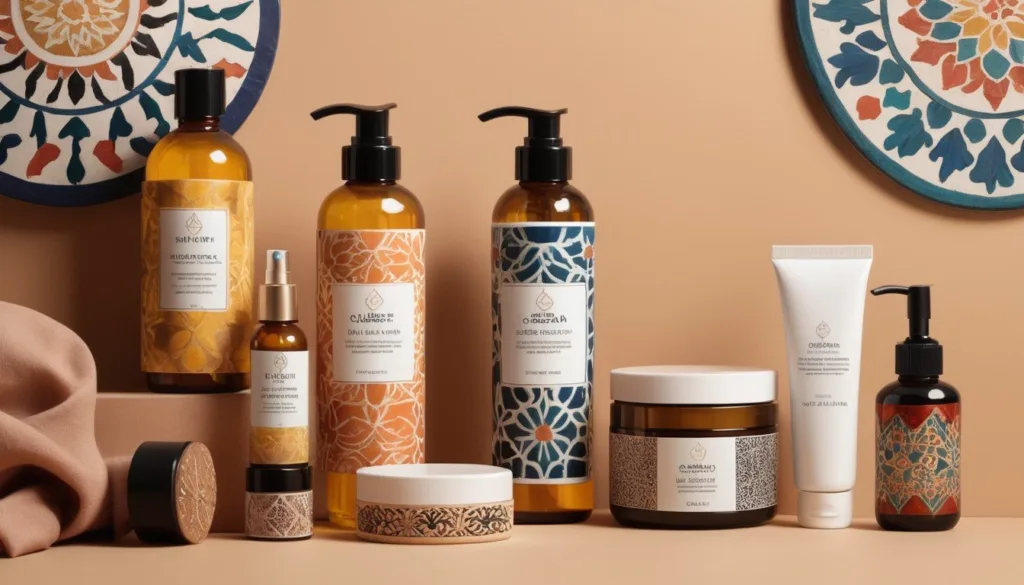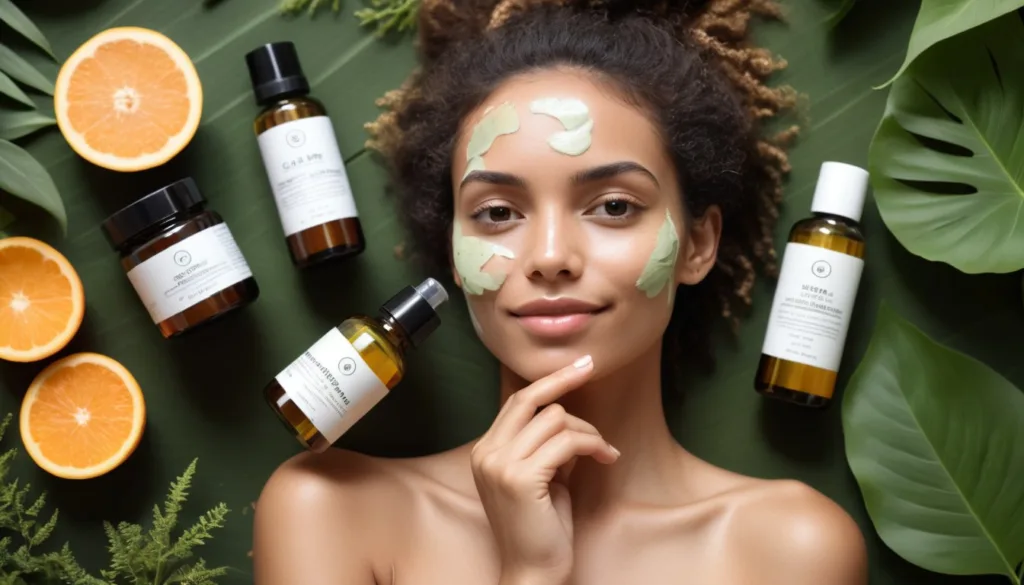Ugh, oily skin. Been there (still here), done that (still doing it). And if you’re also battling acne on top of that, you might be thinking, “Oil? On my already oily face? Hard pass!”
But hold up! What if I told you that oil cleanser could actually be your skin’s new BFF? Seriously, it sounds crazy, but hear me out.
For years, the beauty world told us that oil is the enemy of oily skin. We were supposed to scrub the shine away with harsh cleansers, leaving our faces feeling tight and stripped. But guess what? That approach can backfire, making our skin produce even more oil to compensate for all that dryness!
Here’s where oil cleansers come in. These little bottles are filled with, well, oil! But not just any oil – we’re talking gentle, skin-loving oils that work like magic. Instead of stripping your skin, they attract and dissolve makeup, sunscreen, and excess oil, leaving your face clean, balanced, and oh-so-soft. So ditch the harsh cleansers and get ready to experience a whole new level of cleaning!
Table of Contents
Oil Cleansing 101: The Magic of Dissolving Like with Like
Okay, so we’ve busted the myth about oil being the enemy of oily skin. But how exactly do these oil cleansers work their magic? It all boils down to a scientific principle called “like dissolves like.” Basically, oil attracts and dissolves other oils.
Here’s the breakdown:
- Makeup Melter: Think of your eyeliner, mascara, and foundation as fancy oils clinging to your skin. An oil cleanser gently massages and dissolves that makeup, leaving your face squeaky clean without any harsh scrubbing.
- Sunscreen Slayer: Sunscreen is essential, but let’s be real, some formulas can feel like a greasy film. Oil cleansers break down sunscreen without stripping away all the good stuff that protects your skin.
- Excess Oil Eraser: Oily skin woes? Oil cleansers are like magnets for excess sebum. They draw it out, leaving your skin feeling balanced and refreshed, not stripped and tight.
Want to know why gel sunscreen is the ultimate match for oily skin types? Dive into my other article for insider tips on achieving a flawless complexion!
Quick Tip: For an extra cleansing boost, emulsify your oil cleanser with warm water at the end of your massage. This creates a milky texture that rinses away easily, taking all the impurities with it.
Friend or Foe? Picking the Perfect Oil Cleanser for Acne

So we’re on board with the idea of oil cleansers for oily, acne-prone skin. But hold on a sec – aren’t some oils comedogenic (meaning they can clog pores)? You got it! That’s why choosing the right oil cleanser for acne is key. Not all oils are created equal, and some can definitely be troublemakers.
Here’s the deal: We want lightweight, non-comedogenic oils that won’t clog your pores and worsen breakouts. These good boys will cleanse your skin without irritation. So, which oils are the acne-fighting all-stars?
- Jojoba Oil Superstar: This liquid gold is a natural skin soother and closely mimics your skin’s natural sebum. Jojoba oil helps regulate oil production and keeps your pores clear. Win-win!
- Grapeseed Oil Goodness: Lightweight and easily absorbed, grapeseed oil is another non-comedogenic champion. It’s gentle enough for even the most sensitive skin and helps fight inflammation, a major acne culprit.
- Safflower Oil Savior: Rich in linoleic acid, safflower oil helps keep pores clear and fights against bacteria that can contribute to breakouts. It’s also super lightweight and absorbs quickly, leaving no greasy residue.
- Hemp Seed Oil Hero: This oil is packed with linoleic acid, which helps regulate oil production and keep pores clear. Hemp seed oil is also naturally anti-inflammatory, making it a great choice for acne-prone skin.
Quick Tip: When shopping for an oil cleanser, check the ingredient list! Look for products formulated with the good-for-you oils mentioned above and avoid anything with heavy, pore-clogging oils like coconut or mineral oil.
Busted Myth: Why Oil Isn’t the Enemy of Oily Skin

Alright, imagine you walk by a grease stain and your face instantly starts to mirror it. Yeah, oily skin can be a struggle. But here’s the thing – that whole “oil is bad for oily skin” thing? Total myth! In fact, the right kind of oil can actually be your secret weapon for a more balanced complexion.
Myth #1 (The Ultimate): Oil Cleansers Will Make My Skin Even Oilier
Think of it like this: Your skin naturally produces oil, called sebum to keep it hydrated and protected. But sometimes, our skin gets a little overenthusiastic with the sebum production, leading to that dreaded shine. Harsh cleansers can actually strip away too much oil, tricking your skin into going into overdrive and producing even more oil to compensate.
Here’s how oil cleansers work: They contain oils that are similar to the natural oils your skin produces. These good-for-you oils attract and dissolve dirt, makeup, sunscreen, and even excess oil, without stripping your skin bare. The result? A clean, balanced complexion that’s not left feeling tight or dry.
Myth #2: Oil Cleansers Will Clog My Pores and Cause Breakouts
I get it—putting oil on your face sounds like a one-way ticket to Breakout City. But fear not, my friend! Not all oils are created equal, and the ones found in oil cleansers are specifically chosen for their non-comedogenic properties. That means they won’t clog your pores or cause pesky pimples to pop up uninvited.
Myth #3: Oil Cleansers Are Only for Dry Skin Types
Think again, buttercup! While it’s true that oil cleansers are a godsend for dry skin, they’re equally fantastic for oily, acne-prone skin like ours. In fact, they’re like a superhero cape for your complexion, swooping in to save the day by gently cleansing away impurities without leaving your skin feeling stripped or tight.
Quick Tip: Not all oils are created equal! Look for oil cleansers formulated with lightweight, non-comedogenic oils like jojoba, grapeseed, hemp seed oil or safflower oil. These won’t clog your pores, leaving your skin refreshed, and not greasy.
Double Trouble? The Cleansing Power of the Double Cleanse
Ever heard of the double cleanse? It’s a K-beauty (Korean skincare) staple that’s all about achieving a squeaky-clean, glowy complexion. And guess what? It can be a total game-changer for oily, acne-prone skin, especially when you use an oil cleanser as the first step!
Here’s how the double cleanse works its magic:
- Oil Dissolves Oil: Think of your oil cleanser as the makeup and sunscreen magnet. It gently dissolves all that gunk without stripping your skin.
- Water Washes Away: After the oil cleanser, you follow up with a water-based cleanser. This washes away any leftover residue from the oil cleanser, sweat, dirt, and anything else that might be lingering on your skin.
So why is oil cleansing the first step for acne-prone skin?
Because it tackles the makeup, sunscreen, and excess oil that can clog pores and lead to breakouts. The water-based cleanser then polishes things off, leaving your skin truly clean and prepped for the rest of your skincare routine.
Ready to conquer summer without the shine? Dive into my latest article for all the summer skincare secrets you need.
Quick Tip: Not a fan of double cleansing every night? Totally fine! Oil cleansing can be a great way to remove makeup and sunscreen at the end of the day. You can just use your water-based cleanser for a quick refresh in the mornings. Listen to your skin and find what cleansing routine works best for you!
So, You Wanna Try It? Tips for Using Oil Cleansers on Acne-Prone Skin

Feeling convinced that oil cleansers might be your new “holy grail” for battling oily, acne-prone skin? Let’s dive into how to use them like a pro and avoid any potential pore-clogging pitfalls!
First things first: Apply your oil cleanser to dry skin. This allows the oil to really grab onto makeup, sunscreen, and excess sebum.
Massage Magic: Don’t just slap on the oil and rinse! Take a dime-sized amount of oil cleanser and warm it up between your fingertips. Then, gently massage it all over your face in circular motions for about 30 seconds. Pay extra attention to areas prone to breakouts, like your nose and chin.
Emulsification is Key: Here’s where the magic happens! Wet your hands and splash some warm water onto your face. This will help the oil cleanser transform into a milky texture, which is important for rinsing it all away without leaving a greasy residue. Continue massaging your face for another 15 seconds to make sure everything is emulsified.
Rinse and Repeat (Maybe): Thoroughly rinse your face with warm water. If you’re wearing heavy makeup or sunscreen, you might need to repeat the oil-cleansing process once more.
Quick Tip: After rinsing, pat your face dry with a clean, soft towel. Don’t rub, as this can irritate your skin. Follow up with your regular water-based cleanser and the rest of your skincare routine. Your skin will feel clean, refreshed, and ready for the next steps!
The Verdict: Is Oil Cleanser Right for You?
So, we’ve spilt the tea on all things oil cleansers. But the question remains – is it the right choice for your oily, acne-prone skin? Let’s weigh the pros and cons to help you decide!
Pros of Oil Cleansing for Acne-Prone Skin
- Dissolves Makeup & Sunscreen: Oil cleansers are like makeup and sunscreen erasers, leaving your skin squeaky clean without harsh scrubbing.
- Balances Oil Production: The right oils can actually help regulate your skin’s natural sebum production, preventing that dreaded excess oil.
- Gentle & Hydrating: Unlike harsh cleansers, oil cleansers won’t strip your skin, leaving it feeling hydrated and comfortable.
- Clogged Pores? No More!: By dissolving makeup, sunscreen, and excess oil, oil cleansers help keep pores clear, reducing the risk of breakouts.
Cons of Oil Cleansing for Acne-Prone Skin
- Not All Oils Are Created Equal: Some oils can be comedogenic and clog pores. Stick to lightweight, non-comedogenic options like jojoba or grapeseed oil.
- Trial and Error: Finding the perfect oil cleanser for your skin might take some experimentation. Listen to your skin and pay attention to any breakouts.
- Extra Step: Double cleansing adds an extra step to your routine, which might not be ideal for everyone.
Ran out of makeup remover? Check out my article on tips for removing makeup from oily skin with 7 handy tricks.
Quick Tip: If you’re new to oil cleansing, stick to once or twice a week and see how your skin reacts. You can always gradually increase the frequency if your skin loves it!
Ultimately, the decision of whether or not to try oil cleansing is up to you. But hey, with all these potential benefits for oily, acne-prone skin, it might just be worth a shot! Just remember to choose the right oil, listen to your skin, and embrace the double cleanse if you’re feeling adventurous.
Bonus: Skincare SOS! Troubleshooting Oil Cleansing for Acne

Okay, so you’ve taken the plunge and started using an oil cleanser. But wait – what’s that new breakout on your forehead doing there? Hold on before you ditch the oil cleanser entirely! There’s a chance you might be experiencing purging, not irritation. Let’s break it down and keep your acne journey smooth sailing.
Breakouts? Not So Fast – It Might Be Purging!
Sometimes, when you introduce a new product (especially one that’s tackling deep-down gunk!), your skin might purge. This means the oil cleanser is actually working its magic, bringing existing clogged pores to the surface. It might look like a breakout at first, but trust the process! Purging usually clears up within a few weeks.
How to Spot Purging vs. Irritation
- Purging: Pimples tend to appear in areas where you already get breakouts. They might be whiteheads or small bumps. Purging typically clears up within 2-4 weeks.
- Irritation: This shows up as redness, dryness, or a burning sensation. Irritated skin might break out in itchy, red bumps that don’t look like your usual pimples.
Quick Tip: If you suspect irritation, stop using the oil cleanser immediately. If it’s purging, give your skin a few weeks to adjust. If the breakouts don’t clear up or get worse, consult a dermatologist.
Here are some extra tips to keep your oil-cleansing journey smooth
- Patch Test First: Apply a small amount of the oil cleanser to your inner arm and wait 24 hours. If there’s no redness or irritation, you’re good to go!
- Start Slow: Don’t go overboard with oil cleansing! Start with once or twice a week and see how your skin reacts.
- Listen to Your Skin: If something feels off, stop using the oil cleanser. There’s no shame in switching things up!
Remember, a little trial and error is normal when finding the perfect skincare routine. Embrace the oil-cleansing journey; with a little patience, you might just find your new acne-fighting BFF!
The Final Squeeze
So, there you have it! The truth about oil cleansers and oily, acne-prone skin. It turns out, oil can actually be your BFF in the fight against breakouts. By dissolving makeup, sunscreen, and excess oil, oil cleansers can help keep your pores clear and your skin balanced.
Of course, it’s not a one-size-fits-all situation. Choose the right oil (think jojoba or grapeseed!), listen to your skin, and don’t be afraid to experiment with the double cleanse. With a little trial and error, you might just be surprised at how happy and healthy your skin can be!
Ready to ditch the harsh cleansers and embrace the oil cleansing revolution? Give it a shot and see what a difference it can make in your acne journey!
FAQs
Q: I have oily skin, but I’m worried an oil cleanser will clog my pores. Is that true?
A: Not all oils are created equal! Some harsh cleansers can strip your skin, leading it to produce more oil to compensate. The right oil cleanser, formulated with lightweight, non-comedogenic oils like jojoba or grapeseed oil, can actually help regulate oil production and keep your pores clear.
Q: What are the benefits of using an oil cleanser for acne-prone skin?
A: There are several benefits to using an oil cleanser for acne-prone skin. Oil cleansers:
- Dissolve makeup, sunscreen, and excess oil, preventing clogged pores and breakouts.
- Help regulate oil production, keeping your skin balanced and shine-free.
- Cleanse gently without stripping your skin, which can worsen irritation and acne.
Q: How do I use an oil cleanser?
A: Here’s how to use an oil cleanser for a gentle and effective cleanse:
- Apply the oil cleanser to dry skin.
- Massage it gently all over your face for about 30 seconds, focusing on breakout-prone areas.
- Wet your hands and add warm water to emulsify the oil cleanser, creating a milky texture.
- Rinse thoroughly with warm water.
- Follow up with your water-based cleanser and the rest of your skincare routine.
Q: Do I have to double cleanse with an oil cleanser?
A: Double cleansing, which involves using an oil cleanser followed by a water-based cleanser, is a great way to remove makeup, sunscreen, and impurities. However, it’s not essential for everyone. You can experiment and see if double cleansing works best for your skin. If not, using an oil cleanser at the end of the day to remove makeup and sunscreen is perfectly fine!
Q: I started using an oil cleanser and I’m breaking out! What’s happening?
A: Sometimes, when you introduce a new product like an oil cleanser, your skin might purge. This means the cleanser is working its magic, bringing existing clogged pores to the surface. Purging typically clears up within a few weeks. If the breakouts are persistent or accompanied by redness and irritation, stop using the oil cleanser and consult a dermatologist.
Q: How do I choose the right oil cleanser for my oily, acne-prone skin?
A key thing to remember is to choose an oil cleanser formulated with lightweight, non-comedogenic oils. Some great options include jojoba oil, grapeseed oil, and safflower oil. Avoid cleansers with heavy oils like coconut oil or mineral oil, which can clog pores.



Leave a Reply